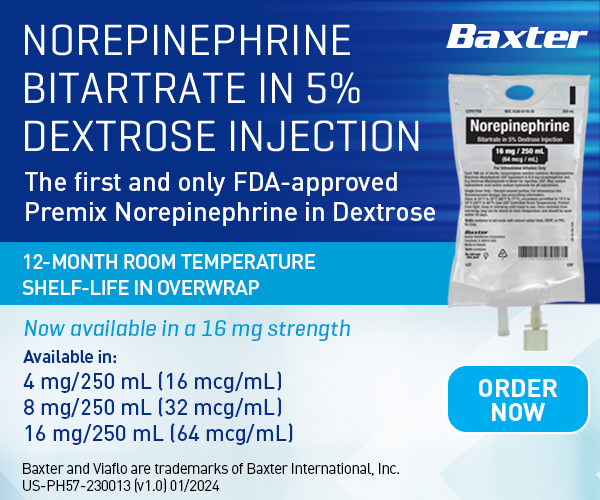BALTIMORE — With all of the testing of complex new therapies to lower severity of COVID-19 infections, a simple and common practice — taking a daily aspirin to protect against cardiovascular disease – has shown some promise.
Apparently, there are significant advantages to doing that, when it comes to the virus. A study published in the journal Anesthesia and Analgesia offered “cautious optimism” that novel coronavirus patients who were taking a daily low-dose aspirin to protect against cardiovascular disease had a significantly lower risk of complications and death compared to those who were not taking aspirin.
| Aspirin Use is Associated with Decreased Mechanical Ventilation, ICU Admission, and In-Hospital Mortality in Hospitalized Patients with COVID-19 |
University of Maryland School of Medicine-led researchers pointed out that patients on daily aspirin were less likely to be placed in the intensive care unit or to require mechanical ventilation, and, most significantly, those patients had a lower death rate. Researchers from Walter Reed National Military Medical Center in Bethesda, MD, participated in the study.
“This is a critical finding that needs to be confirmed through a randomized clinical trial,” said study leader Jonathan Chow, MD, assistant professor of anesthesiology at UMSOM. “If our finding is confirmed, it would make aspirin the first widely available, over-the-counter medication to reduce mortality in COVID-19 patients.”
Background information in the study explained that COVID-19 is associated with hypercoagulability and increased thrombotic risk in critically ill patients. Yet, the authors wrote, they were unaware of any studies evaluating whether aspirin use is associated with reduced risk of mechanical ventilation, intensive care unit admission and in-hospital mortality.
To remedy that, researchers conducted a retrospective, observational cohort study of 412 adult patients admitted with COVID-19 to multiple hospitals in the United States between March 2020 and July 2020. Defined as the primary outcome was the need for mechanical ventilation, while secondary outcomes were ICU admission and in-hospital mortality.
The research team controlled for several factors affecting patient prognosis, including age, gender, body mass index, race, hypertension and diabetes. Also considered were cardiovascular disease, kidney disease, liver disease and the use of beta blockers to control blood pressure.
Of the patients studied, 314 (76.3%) did not receive aspirin, while 98 patients (23.7%) received aspirin within 24 hours of admission or seven days prior to admission. Results indicated that aspirin use had a crude association with less mechanical ventilation (35.7% aspirin vs. 48.4% nonaspirin, p=0.03) and ICU admission (38.8% aspirin vs. 51.0% nonaspirin, p=0.04), but no crude association with in-hospital mortality (26.5% aspirin vs. 23.2% nonaspirin, p=0.51).
After adjusting for eight confounding variables, however, the authors reported that aspirin use was independently associated with decreased risk of mechanical ventilation (adjusted HR 0.56, 95% CI 0.37-0.85, p=0.007), ICU admission (adjusted HR 0.57, 95% CI 0.38-0.85, p=0.005), and in-hospital mortality (adjusted HR 0.53, 95% CI 0.31-0.90, p=0.02). No differences in major bleeding (p=0.69) or overt thrombosis (p=0.82) were detected between aspirin users and nonaspirin users, however.
Essentially, aspirin use was associated with a 44% reduction in the risk of being put on a mechanical ventilator, a 43% decrease in the risk of ICU admission and a 47% decrease in the risk of dying in the hospital compared to those who were not taking aspirin, researchers calculated.
“Aspirin use may be associated with improved outcomes in hospitalized COVID-19 patients,” the authors concluded. “However, a sufficiently powered randomized controlled trial is needed to assess whether a causal relationship exists between aspirin use and reduced lung injury and mortality in COVID-19 patients.”
“We believe that the blood thinning effects of aspirin provides benefits for COVID-19 patients by preventing microclot formation,” explained study co-author Michael A. Mazzeffi, MD, associate professor of anesthesiology at UMSOM. “Patients diagnosed with COVID-19 may want to consider taking a daily aspirin as long as they check with their doctor first.” Those at increased bleeding risk due to chronic kidney disease, for example, or because they regularly use certain medications, like steroids or blood thinners, may not be able to safely take aspirin, he added.
- Chow, Jonathan H. MD; Khanna, Ashish K. MD; Kethireddy, Shravan MD; Yamane, David MD; et. Al. Levine, Andrea MD6; Jackson, Amanda M. MD, MAJ, MC, USA7; McCurdy, Michael T. MD7; Aspirin Use is Associated with Decreased Mechanical Ventilation, ICU Admission, and In-Hospital Mortality in Hospitalized Patients with COVID-19, Anesthesia & Analgesia: Oct. 21, 2020 – Volume Publish Ahead of Print – Issue – doi: 10.1213/ANE.0000000000005292

